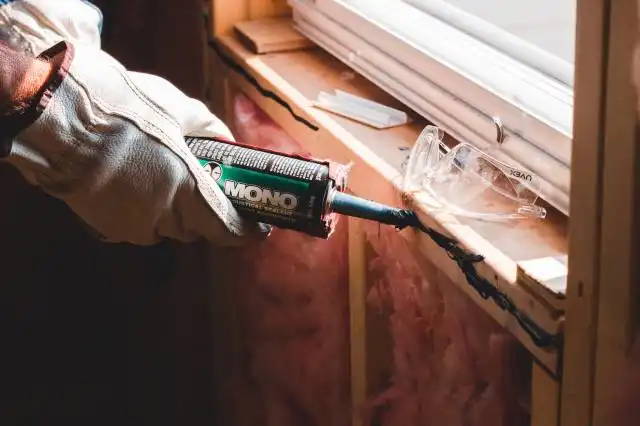Start a Specialty Suit Store
Stitching Your Dream: One Suit at a Time
| Updated


SPECIALTY SUIT STORE
Stepping into a Specialty Suit Store business is like walking onto the catwalk of entrepreneurship. This type of business excels at selling uniquely tailored, high-quality suits for individuals who appreciate style, comfort, and a personal touch. Ditch the dull, drab, off-the-rack options, and immerse yourself in a world where each suit tells a different story, a story chosen and narrated by the customer. So, are you ready to stitch your dream, one suit at a time?
Jump to Business Plan
RELATED BUSINESS IDEAS
Browse ALL Retail & Shopping Business Ideas
Discover Your Perfect Domain
Unlock the door to your online success with our hand-picked selection of premium domain names. Whether you're starting a new venture or rebranding an existing one, the right domain can set the tone for your digital presence. Browse through our curated list, each with its unique potential to enhance your brand's visibility and credibility.
SPECIALTY SUIT STORE MINI BUSINESS PLAN
This a quick reality check to help you identify the strengths and weaknesses of your business concept before you dive in.
Business Idea: Specialty Suit Store
Expected Percent Margin:
- Gross Margin: 55-65%
- Net Profit Margin: 10-20%
Earnings Expectations:
- Daily Earnings: $300 - $600
- Weekly Earnings: $2,100 - $4200
- Monthly Earnings: $9,000 - $18,000
- Annual Earnings: $108,000 - $216,000
Actions to Achieve Profit Margins and Earnings:
Inventory Management:
- Initial Investment: Around $50,000 - $100,000 for diverse, high-end inventory.
- Supplier Relationships: Form partnerships with reliable designers or suppliers.
Marketing and Customer Acquisition:
- Branding: Build a strong brand appealing to your target demographic.
- Advertising: Budget around $1000 per month for strategic online and offline advertising.
Sales and Customer Experience:
- Staffing: Hire experienced staff proficient in fashion and styling.
- Customer Service: Emphasize personalized shopping experiences and top-notch customer service.
Cost Control:
- Location: Choose a location keeping in mind the rental cost vs. visibility and foot traffic balance.
- Utilities and Maintenance: Expect to budget around $500-$1000 monthly.
Business Operations:
- Store Hours: Keep the store open 6 days a week, for a minimum of 9 - 10 hours a day.
- Transaction Volume: Aim for at least 10 transactions per day, with an average suit price of $300 - $600.
Please note these are rough estimations and can vary depending on factors such as location, economic conditions, chosen brands, and individual business strategies. Always seek advice from a financial/business advisor for personalized guidance.
NOT WHAT YOU HAD IN MIND? Here are more ideas



Browse ALL Retail & Shopping Business Ideas
Grab Your Business Website Name
Before you get caught up in the whirlwind of setting up your business, invest in a domain name. It's a small but significant step that lays the foundation for your brand and makes it easier for customers to find and trust you. Just like you wouldn't build a house without securing the land first, don't build a business without securing your domain name.
"Why? Can't that wait?" Here's why it shouldn't
Step 1: Determine if the Business is Right Endeavor
Breakdown of Startup Expenses
Starting a specialty suit store requires a significant investment of both time and money. It is important to understand all of the costs associated with the business before making any decisions. This includes the cost of renting or purchasing a space, the cost of inventory, the cost of marketing and advertising, and the cost of any necessary equipment or supplies. Additionally, it is important to factor in the cost of any licenses or permits that may be required to operate the business.
Breakdown of Ongoing Expenses
In addition to startup costs, it is important to understand the ongoing expenses associated with running a specialty suit store. This includes the cost of rent, utilities, and insurance. Additionally, it is important to factor in the cost of labor, inventory, and marketing and advertising. It is also important to consider the cost of any necessary equipment or supplies that may be needed to keep the business running.
Examples of Ways to Make Money
There are a variety of ways to make money with a specialty suit store. The most common way is to sell suits directly to customers. Additionally, the store can offer tailoring services, custom designs, and alterations. The store can also offer accessories such as ties, cufflinks, and pocket squares. Additionally, the store can offer rental services for special occasions. Finally, the store can host special events such as trunk shows and fashion shows to attract customers.
Step 2: Name the Business
Brainstorm Ideas: Brainstorming is a great way to come up with ideas for a business name. Consider what the business will specialize in, the target market, and the overall mission of the business. Think of words that are related to the business, such as the type of product or service, the location, or the industry.
Research Competitors: Research competitors to see what types of names they have chosen. This can help to get ideas for a name that is unique and memorable. Consider the names of competitors and how they could be adapted for the new business.
Consider the URL: When selecting a name for the business, consider the availability of the URL. It is important to have an online presence, so make sure the URL is available. If the URL is not available, consider variations of the name or using a different domain extension.
Check for Trademarks: Before settling on a name, it is important to check for trademarks. This will help to ensure that the name is not already in use. If the name is already in use, it will need to be changed to avoid any legal issues.
Get Feedback: Once a few potential names have been chosen, get feedback from friends, family, and potential customers. This will help to narrow down the choices and make sure the name is memorable and conveys the right message.
Step 3: Secure Financing
When it comes to starting a specialty suit store, securing financing is a key step in the process. There are a variety of sources of financing available to entrepreneurs, including traditional bank loans, venture capital, and angel investors. Bank loans can be a great source of financing, but they typically require a good credit score and collateral. Venture capital and angel investors are another option, but they often require a business plan and a detailed explanation of how the money will be used. Additionally, small business grants may be available from local and state governments, as well as from private foundations.
Calculate Startup Costs
In addition to securing financing, it is important to calculate the startup costs associated with opening a specialty suit store. This includes the cost of purchasing inventory, rent for the store, and any other necessary equipment. It is also important to factor in the cost of marketing and advertising, as well as the cost of hiring staff. Additionally, it is important to consider the cost of any necessary licenses or permits that may be required.
Calculate Ongoing Expenses
Once the startup costs have been calculated, it is important to consider the ongoing expenses associated with running a specialty suit store. This includes the cost of rent, utilities, insurance, and any other necessary expenses. Additionally, it is important to factor in the cost of employee wages, as well as the cost of marketing and advertising. Finally, it is important to consider the cost of any necessary licenses or permits that may be required.
Step 4: Create a Business Plan
Creating a business plan is essential for any business, regardless of size. A business plan is a comprehensive document that outlines the goals of the business and how it plans to achieve those goals. It should include a detailed description of the business, a market analysis, a competitive analysis, a financial plan, and a marketing plan.
When creating a business plan, it is important to consider the components that will be included. The business description should include the purpose of the business, the products and services offered, and the target market. The market analysis should include an analysis of the industry, the target market, and the competition. The competitive analysis should include a comparison of the business to its competitors and an analysis of the competitive advantages of the business. The financial plan should include a budget, a cash flow statement, and a break-even analysis. Finally, the marketing plan should include a description of the marketing strategies and tactics that will be used to reach the target market.
Once the components of the business plan have been determined, the next step is to create the actual document. This should include an executive summary, a description of the business, a market analysis, a competitive analysis, a financial plan, and a marketing plan. The executive summary should provide an overview of the business and its goals. The description of the business should include the purpose of the business, the products and services offered, and the target market. The market analysis should include an analysis of the industry, the target market, and the competition. The competitive analysis should include a comparison of the business to its competitors and an analysis of the competitive advantages of the business. The financial plan should include a budget, a cash flow statement, and a break-even analysis. Finally, the marketing plan should include a description of the marketing strategies and tactics that will be used to reach the target market.
Once the business plan is complete, it should be reviewed and edited to ensure accuracy and clarity. The business plan should also be reviewed by a professional to ensure that it is complete and accurate. Finally, the business plan should be presented to potential investors or lenders to secure the necessary funding for the business.
Step 5: Choose a Location
- Accessibility: The location should be easily accessible to customers, with convenient parking and public transportation options.
- Foot Traffic: The store should be located in an area with high foot traffic, as this will help to draw in more customers.
- Visibility: The store should be visible from the street, so that passersby can easily spot it.
- Competition: It’s important to consider the competition in the area, as this could affect the success of the store.
Choosing a location for a specialty suit store is an important step in the process. When selecting a location, there are several factors to consider. Accessibility is key; the store should be easily accessible to customers, with convenient parking and public transportation options. Additionally, the store should be located in an area with high foot traffic, as this will help to draw in more customers. Visibility is also important; the store should be visible from the street, so that passersby can easily spot it. Finally, it’s important to consider the competition in the area, as this could affect the success of the store. Researching the area and visiting potential locations in person is a great way to ensure that the chosen location is the right fit. Additionally, it’s important to ensure that the store is in compliance with local zoning laws and regulations. Once the location has been chosen, it’s time to move on to the next step in the process.
Step 6: Obtain Necessary Licenses and Permits
Before you can open your specialty suit store, you must obtain the necessary licenses and permits. Depending on your location, you may need to obtain a business license, a seller’s permit, a zoning permit, and a health permit. You may also need to obtain a federal employer identification number (EIN) from the Internal Revenue Service (IRS). Additionally, if you plan to hire employees, you will need to register with the state and obtain a state employer identification number (SEIN).
How to Obtain Licenses and Permits
To obtain the necessary licenses and permits, you will need to contact your local government offices and inquire about the specific requirements for your business. You will likely need to provide information about the type of business you are opening, the location of the business, and the services you will offer. You will also need to provide proof of your identity and pay any associated fees. Once you have obtained the necessary licenses and permits, you will be able to legally operate your business.
Benefits of Obtaining Licenses and Permits
Obtaining the necessary licenses and permits is important for a number of reasons. First, it allows you to legally operate your business and protect yourself from potential legal issues. Additionally, having the necessary licenses and permits can help you gain credibility with customers and vendors. It also shows that you are serious about your business and have taken the necessary steps to ensure that it is compliant with all local laws and regulations. Finally, having the necessary licenses and permits can help you secure financing from lenders and investors.
Step 7: Purchase Necessary Equipment and Supplies
When starting a specialty suit store, there are a few pieces of equipment and supplies that are necessary. Depending on the size of the store, a cash register, credit card machine, and/or POS system may be needed. Additionally, a mannequin, clothing racks, hangers, and a mirror are all necessary for displaying the suits. Finally, a computer, printer, and internet connection are also necessary for running the business.
Where to Purchase
When it comes to purchasing the necessary equipment and supplies, there are a few different options. For the larger items, such as a cash register or POS system, it is best to purchase these items from a reputable store or online retailer. For the smaller items, such as clothing racks, hangers, and mannequins, these items can be purchased from a variety of stores, including department stores, thrift stores, and online retailers.
Cost
The cost of the necessary equipment and supplies will vary depending on the size of the store and the type of items purchased. For example, a cash register or POS system can cost anywhere from a few hundred dollars to a few thousand dollars. Additionally, clothing racks, hangers, and mannequins can cost anywhere from a few dollars to a few hundred dollars.
Tips for Saving Money
When it comes to purchasing the necessary equipment and supplies, there are a few tips for saving money. One tip is to purchase items in bulk, as this can often result in a discount. Additionally, shopping around for the best prices is also a great way to save money. Finally, purchasing used items, such as clothing racks or mannequins, can also be a great way to save money.
Step 8: Market the Business
Introduction Before launching the business, it is important to create a comprehensive marketing plan. This plan should include strategies for both online and offline marketing. It should also include a budget for marketing and advertising.
Online Marketing Online marketing is one of the most cost-effective ways to reach potential customers. This includes creating a website, optimizing it for search engines, and using social media platforms to promote the business. Additionally, email marketing campaigns can be used to reach out to potential customers.
Offline Marketing Offline marketing is also important for specialty suit stores. This includes creating print advertisements, distributing flyers, and attending industry events. Additionally, partnering with local businesses can be a great way to get the word out about the store.
Advertising Advertising is another important component of marketing the business. This includes placing ads in local newspapers and magazines, as well as on radio and television. Additionally, using billboards and other outdoor signage can be effective in reaching potential customers.
Public Relations Public relations is also important for specialty suit stores. This includes creating press releases, attending networking events, and working with influencers to promote the business. Additionally, creating relationships with local media outlets can be a great way to get the word out about the store.
Conclusion Creating a comprehensive marketing plan is essential for any business. This includes both online and offline marketing strategies, as well as advertising and public relations. By taking the time to create a plan, the business will be well-positioned for success.
Step 9: Hire Employees
- Research the local job market to determine the best way to find qualified employees.
- Create a job description that accurately reflects the duties and responsibilities of the position.
- Utilize online job boards and other resources to post job openings.
- Develop a screening process that includes interviews, background checks, and reference checks.
- Offer competitive wages and benefits to attract the best candidates.
EXPLORE MORE CATEGORIES
Browse ALL Business Idea Categories
TAKE THE NEXT STEPS










